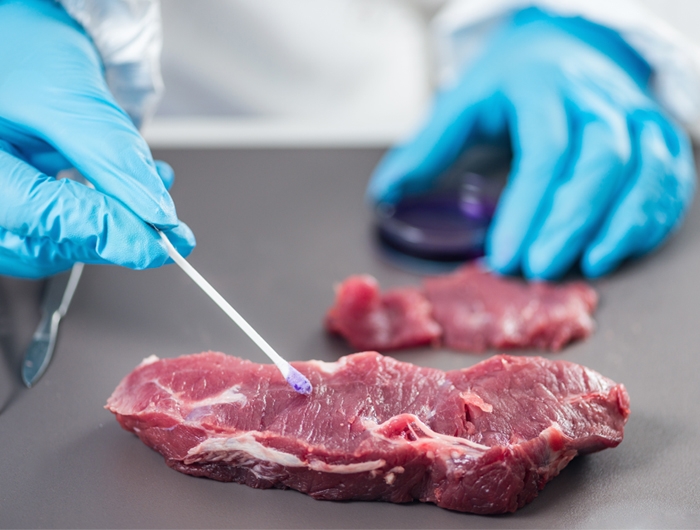Food news you may have missed: Sep 29, 2023

microgen - istockphoto.com.
Shutdown threatens food security for 7 million young children, buying Ozempic online, two California consumer protection bills, and more in this week’s roundup of food safety and nutrition news.
Food safety and nutrition news this week
Every week is a busy week in food safety, nutrition, and health news; this week was no different. Here’s what you may have missed.
Food safety news this week
- The seemingly imminent government shutdown threatens the food safety of all Americans, as Food and Drug Administration inspection schedules will be limited to “for cause”—or outbreaks already happening. "This means if an infant formula manufacturer, for example, had recently had a complaint, recall, or outbreak, they might still get a visit from FDA. But other types of inspections are likely to be on pause. That could mean FDA falls behind on the commitments the agency has made to proactively inspect and improve practices in the formula industry," explains CSPI Director of Regulatory Affairs Sarah Sorscher, JD, MPH. Further, a shutdown defunds nutrition security for America’s 7 million young parents and children who rely on WIC, formally known as the Special Supplemental Nutrition Program for Women, Infants, and Children. If the shutdown persists longer than a few weeks, the Supplemental Nutrition Assistance Program (SNAP) may also see a precipitous shortfall.
Read our statement from CSPI President Dr. Peter G. Lurie. - One year after announcing a suite of goals, CSPI has taken stock of the Biden administration’s progress toward its hunger and nutrition commitments. It is laudable that the Biden-Harris Administration has completed or made progress on more than three-quarters of the commitments that are within the control of the executive branch, but major items are still outstanding; CSPI is especially concerned about the administration’s lack of progress in establishing longer-term voluntary sodium reduction targets for the food industry.
Read more: How the Biden administration can transform food in federal facilities for millions of people - Two bills awaiting California Governor Gavin Newsom’s signature would protect consumers from harmful food additives—including carcinogenic Red 3—and powdered infant formula and baby foods tainted with heavy metals. If they become law, California’s food safety regulations will outpace the FDA’s.
Read CSPI’s letter urging Gov. Newsom to sign AB 418 and AB 899 into law. - If you’ve watched "Poisoned: The Dirty Truth About Your Food" on Netflix, you know that most E. coli contaminations come from irrigation water and handling on farms. But the FDA isn’t authorized to inspect farms for deadly pathogens that later enter our food supply. We want to change that, and you can help.
Ask your senators to support the Expanded Food Safety Investigation Act. - For the 1.5 million Americans who have sesame allergy, the FASTER Act’s stricter labeling requirements that began this year should have made finding safe foods easier. But some manufacturers opted to circumvent the new rules by adding sesame to products that didn’t previously contain it—creating new risks for those with food allergies. CSPI petitioned FDA to make the practice illegal; FDA missed an opportunity then to protect consumers. But this month, the agency updated its guidance to help makers of bread, snacks, and other foods limit cross-contamination and keep foods safe for those with sesame allergy.
Read more at Food Safety Magazine.
Health and nutrition news this week
- Earlier this year, FDA added semaglutide, the drug sold as Ozempic and Wegovy, to its drug shortages list. Consumers are now discovering that they can purchase semaglutide from compounding pharmacies and online retailers, but there are risks: “FDA does not verify the safety or effectiveness of compounded drugs,” says the agency’s website.
Here’s what to know about buying meds online. - Weight gain, heart disease, type 2 diabetes, cancer, memory loss, depression, Crohn’s disease. The list of maladies linked to ultra-processed foods seems endless. Are those foods actually to blame?
Here’s what we do—and don’t yet—know about ultra-processed foods. - National Coffee Day was Thursday of this week. Do you know how much caffeine is in your cuppa? We do! That venti Pike’s Place roast has a whopping 410 mg of caffeine—10 mg over the recommended daily limit.
Use our caffeine chart to track down the caffeine content of your favorite order. - United States Senator Cory Booker (D-NJ) has written a letter to FDA Commissioner Dr. Robert Califf urging the agency to grant the petition filed jointly by CSPI and New York City Department of Health and Mental Hygiene urging the FDA to issue guidance to food manufacturers for voluntary targets to lower added sugars across the U.S. Lowering added sugar intake reduces the risk type 2 diabetes, heart disease, tooth decay, and many other diseases.
Read Sen. Booker’s letter.

Subscribe to Nutrition Action
We name names, remain strictly objective, and deliver scrupulously researched advice about food of all kinds, staying healthy with diet and exercise, and more.

